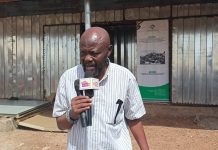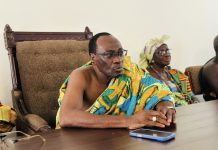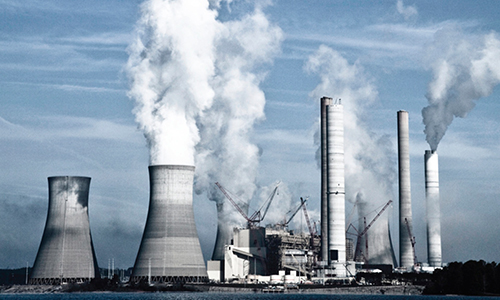JOHANNESBURG, South Africa, October 1, 2021/ — The world is mandating a one-size-fits-all approach to climate change that doesn’t take into consideration Cameroon’s right to make the most of its low-carbon natural gas resources or the continent’s need to eradicate energy poverty.
The African Energy Chamber (EnergyChamber.org) welcomes an honest and open discussion where Africans have a say in which functional solutions are best for Africa. At the African Energy Week, organized by the African Energy Chamber in partnership with South Africa’s Department of Mineral Resources and Energy, the Chamber calls for a balanced response to the Cameroon’s vulnerability to climate change.
Cameroon is a leading sub-Saharan producer of crude oil, with total daily liquid hydrocarbon production averaging 76,000 barrels in 2017. That year, crude petroleum was our largest export, at $1.34 billion. Refined petroleum wasn’t far behind, at $396 million.
Aware that our onshore fields are mature, we have been diversifying our economy. Gold and diamond mining is increasing in our northern and eastern regions, although on a small scale. In addition, Cameroon produces raw construction materials, including soils, clay, and straw, and these make local housing costs more reasonable.
Although these sectors are important to our future, many of the expectations we have for growing our economy relate to natural gas and, more specifically, liquefied natural gas, or LNG, as it is widely known. This is something we look forward to talking more about at African Energy Week, where we will share our experiences and outlook.
Cameroon’s natural gas reserves are estimated at 4.7 billion cubic feet. To put that in perspective, we are number 48 of 99 countries with proven gas reserves, with about 0.07% of the world’s total.
While that might not sound like much compared to, say, the United States with its 322 trillion cubic feet of reserves, LNG offers considerable potential for Cameroon — and the world.
Clean and plentiful, natural gas and LNG are considered essential to the energy transition. Natural gas produces far fewer emissions compared to coal and diesel, and it can provide the power to support wind, solar, and hydroelectricity. The projected long-term growth for LNG is tremendous; McKinsey suggests demand will grow 3.4% per year to 2035, and more than 200 million tons of new capacity will be required by 2050.
Thanks to an agreement with Cameroon’s National Hydrocarbons Corp., French energy company Perenco and gas processor Golar LNG Ltd. are already producing 1.2 million tons of LNG per year from a floating LNG (FLNG) vessel deployed in Cameroonian waters off the coast of Kribi, as well as 30,000 tons of domestic gas for Cameroonian households, and 5,000 barrels of condensate per day.
The companies recently announced plans to increase LNG output by 17% in 2022. And that’s just the start: By 2026, LNG output from Golar’s Hilli Episeyo FLNG facility is expected to reach 1.6 million tons after the drilling of additional wells.
The development of the Etinde field will add to that figure. Cameroon’s second LNG project, the Etinde FLNG facility should be operational within four years and will have the capacity to receive, process, store, and offload 30,000 barrels of condensate per day. The project is expected to add as many as 400 local jobs for skilled workers and 3,000 more indirect jobs.
Jobs, domestic energy, and economic growth, all from a low-carbon resource along the shores of our homeland.
Enabling Environment for a Transition
While Cameroon needs to develop its natural resources, it is important to pay attention on having an enabling environment to do business and also improve investor confidence and dealmaking. The BEAC Forex Regulations does not help and will just hurt the country just as climate activist would.
The Chamber believes that this regulation will contribute to the growing challenge of energy poverty, corruption and the increasing role of bureaucrats in business affairs. The question is simple, why add more burdens and barriers especially at a time when we have to grapple with energy transition and difficulties in funding oil and gas projects. As previously stated by NJ Ayuk, our Executive Chairman, “Bureaucrats should not be picking winners and losers. It is bad for free markets and you can love jobs and hate those who create jobs” he stated.
Businesses, everyday people and people on the front lines need to be protected from this and the Chamber is committed to seeing it through. Our mission here is loud and clear: we are dedicated to being resolute in this provocation from BEAC.
Why would anyone want to deny us this opportunity?
Cameroon is committed to the fight against climate change. With the vast majority of our citizens working in agriculture, we understand how climate change can affect livelihoods. As we move toward our goal of becoming an emergent country by 2035, we have already taken serious and significant steps to decrease our greenhouse gas emissions by 32% through the use of renewable energy, including solar panels and biogas. We are integrating sustainable practices into savannah management and rehabilitating degraded lands. We are also focusing on waste management and recycling.
We’ve come a long way. We know there’s a long way to go to curb the effects of climate change.
But we also know that to fulfil our potential and ultimate destiny, Cameroon can’t turn its back on job-producing industries. We are leveraging our resource wealth in the best way possible, through the development of natural gas. By taking aim at all oil and gas companies, Western climate activists threaten our future. Blanket decisions made by the West without engaging African leaders are unfair, unwarranted, and a throwback to colonialism. Some of the continent’s countries are carbon sinks; others face imminent harm from climate change. How could one approach be appropriate or equitable across the board?
NJ Ayuk, Executive Chairman of the African Energy Chamber, said that demonizing energy companies is not constructive and ignoring the structural role that carbon-based fuels have in today’s society distorts the public debate. Bringing energy companies, governments, and civil society groups to find functional solutions will achieve much more.
We cannot love jobs and hate those who create them. Cameroon can address its climate change challenges and use its energy resources to boost our economy.
Distributed by APO Group on behalf of African Energy Chamber.










































